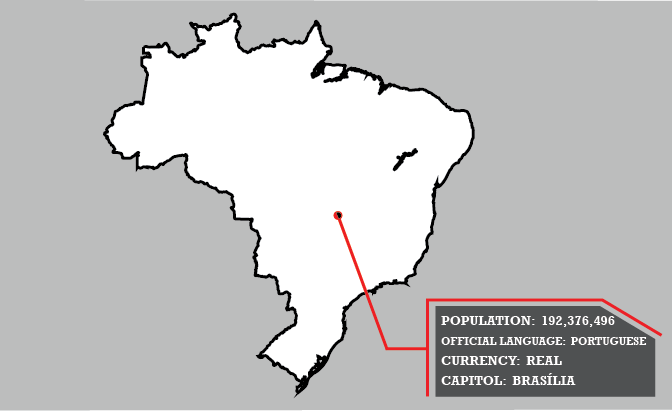Brazil

COUNTRY PROFILE
Everything in Brazil seems larger than life. It has the world's greatest waterfall, biggest wetlands, mightiest river and largest rain forest, as well as one of the most unique and diverse cultures on the planet. Brazil's territory is as varied as its people: dense jungles, semiarid scrub land, rugged hills, jagged mountains and a beautiful coastline. Brazil is large and varied and everyone will love something about it.
Brazil was a Portuguese colony for more than three centuries, and for much of that time, it was at the center of the great Atlantic sugar and slave trades. Evidence of Portuguese culture abounds in everything from language to food. After declaring its independence in 1822, Brazil went on to become a kingdom, an empire and finally, in 1889, a republic. Today, the country's population is a mixture of the descendants of indigenous peoples, European immigrants and African slaves. Other significant immigrant groups include Japanese farmers, Syrian and Lebanese merchants and even Confederate refugees who abandoned the U.S. after its Civil War.
Although it is one of the industrial powerhouses of South America, Brazil has trouble feeding all its people. Through the last decades of the 20th century, Brazil suffered from incredible debt, high inflation and a shaky political system. But Brazil has managed to pull through. Fortunately, inflation has slowed, the economy weathered the storm of the global financial crisis astonishingly well, and the country has one of the most stable democracies on the continent.
Americana, just outside Sao Paulo, is a town founded by Confederate refugees who immigrated after the U.S. Civil War. The phone book is filled with surnames such as Lee and Jones. Once a year, the town's boys dress up in rebel gray and the girls in long gowns, and they hold a formal ball.
Brazil was the only nation in all of the Americas to have its own empire (1822-1889).
DATES
Call for custom dates.
AGE REQUIRMENT
13 and up



